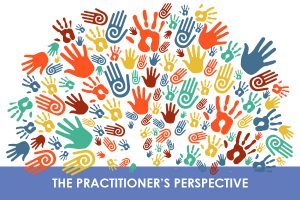Exploring Equity Issues - Blog
My Story: How I Turned from Disgruntled Parent to Community Activist
By Kendra

I was raised in a tight knit neighborhood in a large urban city. I attended public school, as did my siblings, and now my children.
Our elementary school, has 540 students all from the surrounding neighborhoods or have parents that were from the surrounding neighborhoods. I have been a parent there since 1996. Families of children who attend our school have strong and solid relationships with staff and each other. Our educators had spent more than 20 years building this environment. They were remnants of the old school civil rights generation that focused on POWER, LIBERATION, and EDUCATION as a pathway to better lives for all children. We had a principal who spent the last eight years dedicated to the children and their families with a predecessor serving 20+ years in the school. We had active parents and partners that had long, rich legacies in both the community and the school.
But our school district was undergoing rapid changes. In 2010-2011, the District launched a program they called the “Renaissance Schools Initiative” that they hoped would dramatically improve student achievement in the District’s lowest performing schools. Part of this initiative lead to converting traditional public schools to charter schools.
In 2014, ours and another nearby elementary school were slated for conversion to charters. Parents at both schools felt our public schools were a hub for our community and that a conversion to charter would dismantle our public spaces. We believed that a charter school would limit choice in our community, since our schools were the last neighborhood schools serving children in our section of the city. We also researched the named charters test scores in neighboring schools they manage and found that the test scores were similar to the scores the district considered in the decision to privatize our school. Lastly, based on the district’s own data we were not the lowest performing school in the district, however we knew we were struggling, especially with the loss of 27 staff and the addition of three middle year grades added just a few years prior. As parents, we were confused by this decision and questioned the decision, as well as requested to review the RFQ for the potential contract for clarity to what we conceived to be a business deal that did not include the community.
In response, we joined with educators, administrators, community members, families, and young people. We canvassed the neighborhoods, held community events, and phone banked. Our parents voted 121-55 against becoming a charter school. The parents of our neighboring school also overwhelmingly opposed becoming a charter. Parents fought for and won the battle because we were empowered by the desire for quality education for our children.
I was buoyed by our success – we truly believe that public school is the best option for our children. But during the process, both schools lost their administration and 50% or more of their staff. The recruitment of new staff included the community; however we were in the process of grieving the loss of our beloved community and working towards building a relationship with our new Asst. Superintendent and Principal. We won our schools with a plan that emulated what we now call “community schools” but implementation of the plan was left to the mercy of a new team and brought new challenges.
Ultimately, there was no funding and no true efforts put into the strong plan that was created by the school community. In the end I am left asking questions like: What did we truly win?
We are now working with the district to rebuild our school community and our relationship with the district. After four years, the district has invested money in improving climate, education and infrastructure. It is my hope that this is a first step in creating the school that our children deserve.
Lessons we learned include:
- Schools with strong family and school relationships work.
- When schools respect the culture, intellect and values of the community they serve, they are able to change systems.
- Family matters.
- Trauma is real and needs to be addressed.
- Radical racial justice perspectives are crucial.
- Politics matter.
- Parents and community members need to monitor and participate in developing and setting school policies so that the best and most informed decisions will be made that incorporate the needs of all the students.
